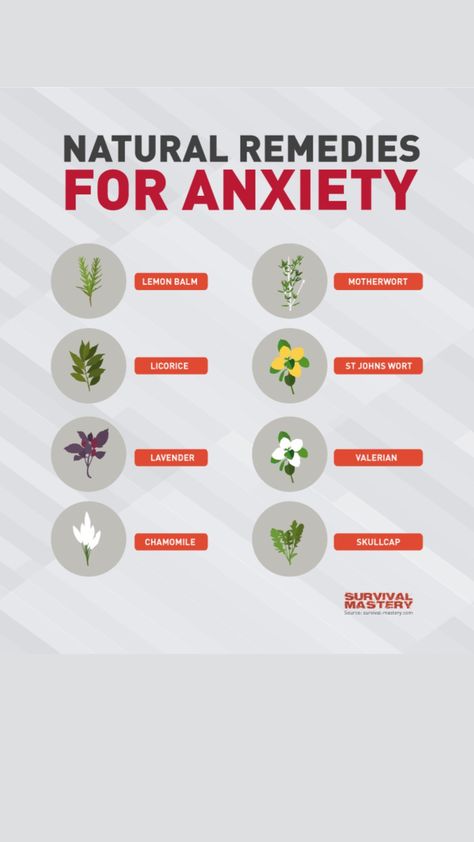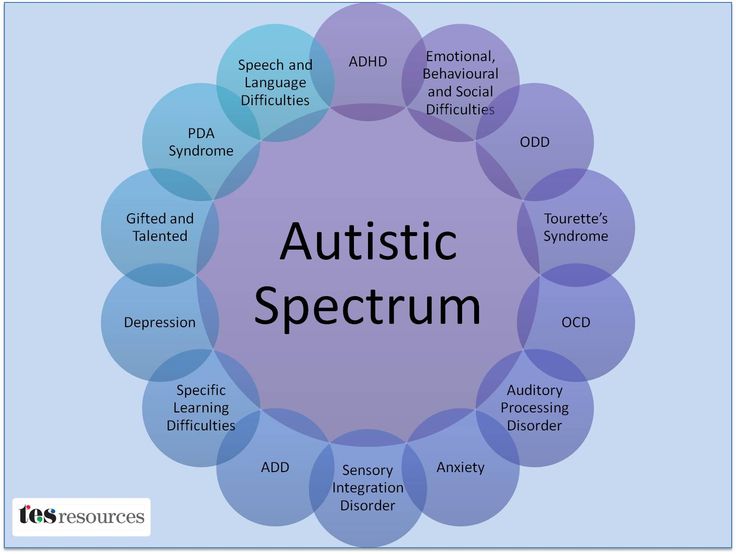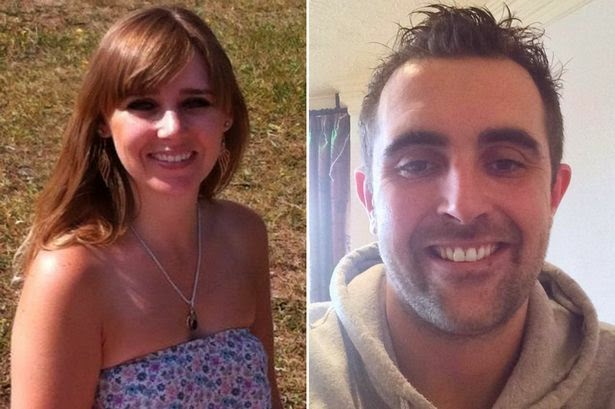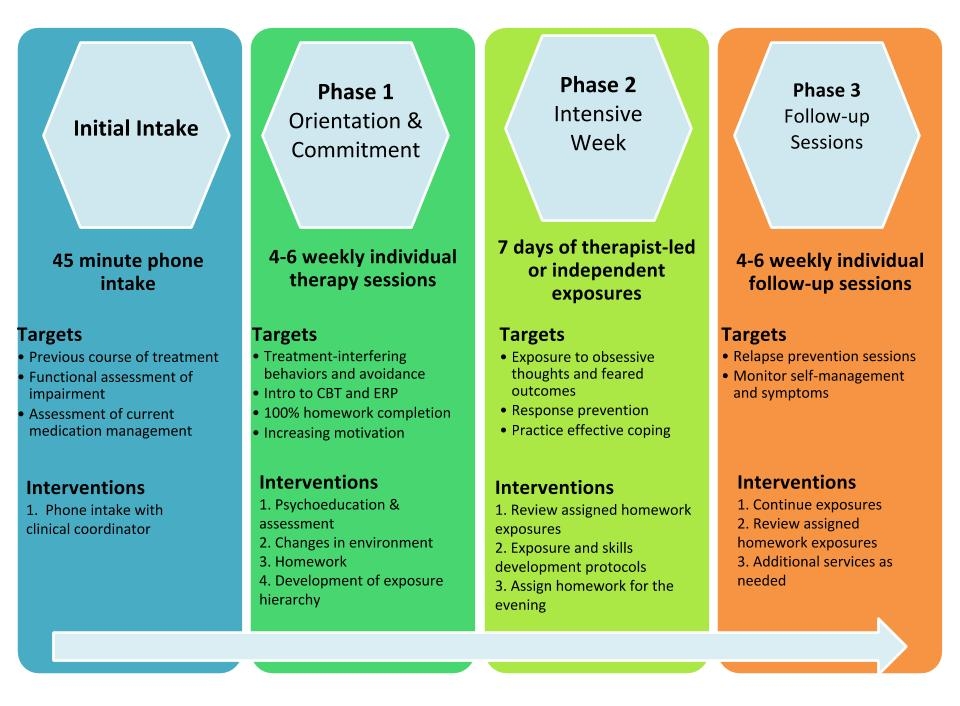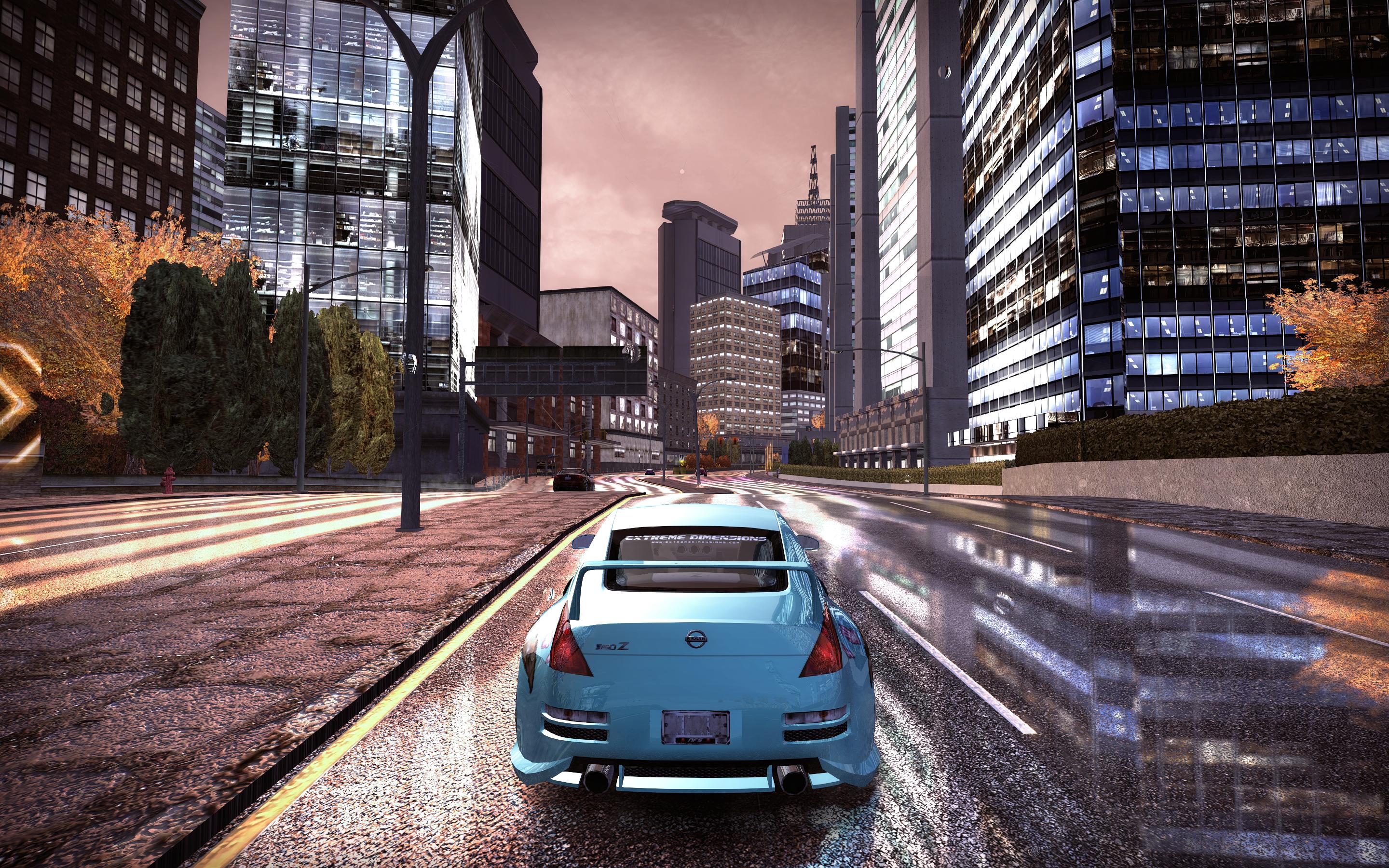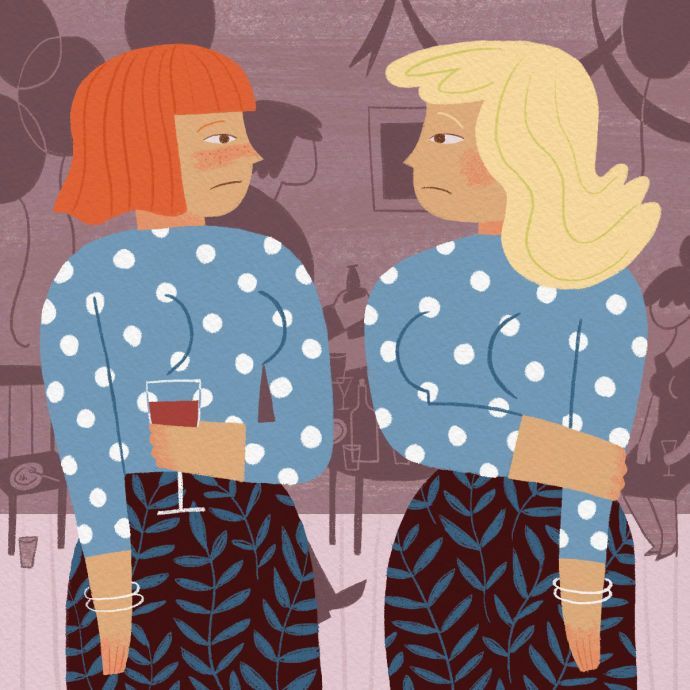How to accept anxiety
Accepting Anxiety: Why It’s Important and How to Do It
Almost everybody experiences anxiety from time to time. Accepting and reframing anxiety can do us a whole lot of good.
You might be familiar with how anxiety feels.
Maybe a big work presentation sets off a cascade of nervous feelings. Or worries about money, your relationship, and the future. Maybe you’re not even sure what sets you off.
Whatever the cause, many of us have been there. Anxiety is one of those human emotions we may all experience, at least from time to time. It’s also our body’s alarm system: a way of letting us know we’re stressed or under some kind of threat physically or emotionally.
But for some, especially people living with an anxiety disorder, this feeling may rarely subside. If you feel like your anxiety is interfering with your life, there are things that can help. One of the most important skills you can develop is learning to accept the discomfort of anxiety.
Here’s what that means.
Feeling anxiety, at least from time to time, may never go away. It’s a basic, human response mechanism.
“Anxiety stems from our fight, flight, freeze instinct getting turned on. The amygdala in the brain — the part of our brain we share with reptiles — is responsible for this,” explains Chloe Haaz Sica, a New York and New Jersey licensed psychologist. “It’s our body’s best protection from threats that exist in the world, and it’s incredibly important to keep us alive.”
In other words, anxiety is there to help us run away from or fight danger when we need it. However, in the modern world, the amygdala isn’t always able to tell the difference between many kinds of threats, including those that might not need this big of a reaction.
“The amygdala is like a smoke alarm,” says Jessica Frick, a licensed professional counselor in Pennsylvania. “It’s looking for smoke but it can’t tell whether that smoke is from fire or a burnt pizza.”
However, if we can accept that anxiety is something we may all experience, it can help us normalize it, what it feels like, and its true purpose.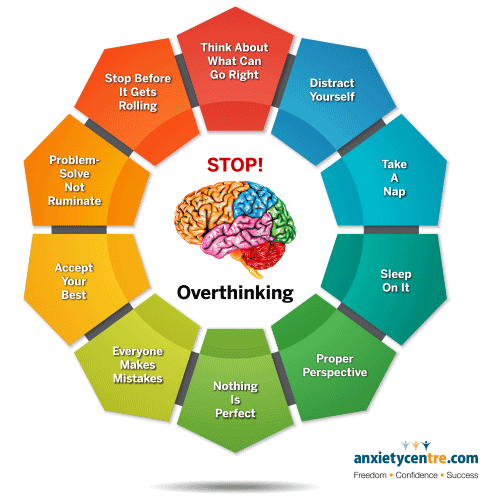
“If we were to experience no anxiety at all, we’d be missing out on important cues from our minds and bodies about danger, discomfort, or uncertainty;” says Kailey Hockridge, a licensed professional clinical counselor from Los Angeles, California.
Then, once we begin normalizing it, we can begin to learn tips and tools to recognize when it’s serving us and when it’s not to better cope or reframe it.
Here are some tips you can try to accept and manage your anxiety:
Practice mindfulness
Mindfulness meditation is a helpful exercise in learning how to sit with the discomfort of anxiety. You may learn through this practice that you can experience anxiety without letting it completely discourage or overwhelm you.
In other words, you may not be able to stop feeling anxious immediately, but you can learn to accept your unpleasant thoughts and then redirect your mind to something else.
When you feel anxious, acknowledge the feeling and let it move through you. You don’t have to judge it or act upon it, you can simply observe it and remind yourself that it will pass.
You don’t have to judge it or act upon it, you can simply observe it and remind yourself that it will pass.
Journal
Journaling is another way to learn to accept anxiety. When you journal, you can gain insight into your emotions and discover whether your anxiety is serving a useful purpose.
To help better understand your anxiety, you can start by considering the following questions:
- What makes me feel anxious right now?
- What, at this moment, do I have control over?
- What type of attitude do I have toward my anxiety?
You may realize through journaling that there are certain times when something specific causes your anxiety, like having a busy work or school week, and other times when there’s no root cause of your anxiety.
In times when you realize that your anxiety isn’t serving a useful purpose, you can then accept the feeling as it is but not take it so seriously.
Make sure you are meeting your needs
Sometimes, however, there is a reason for your anxiety.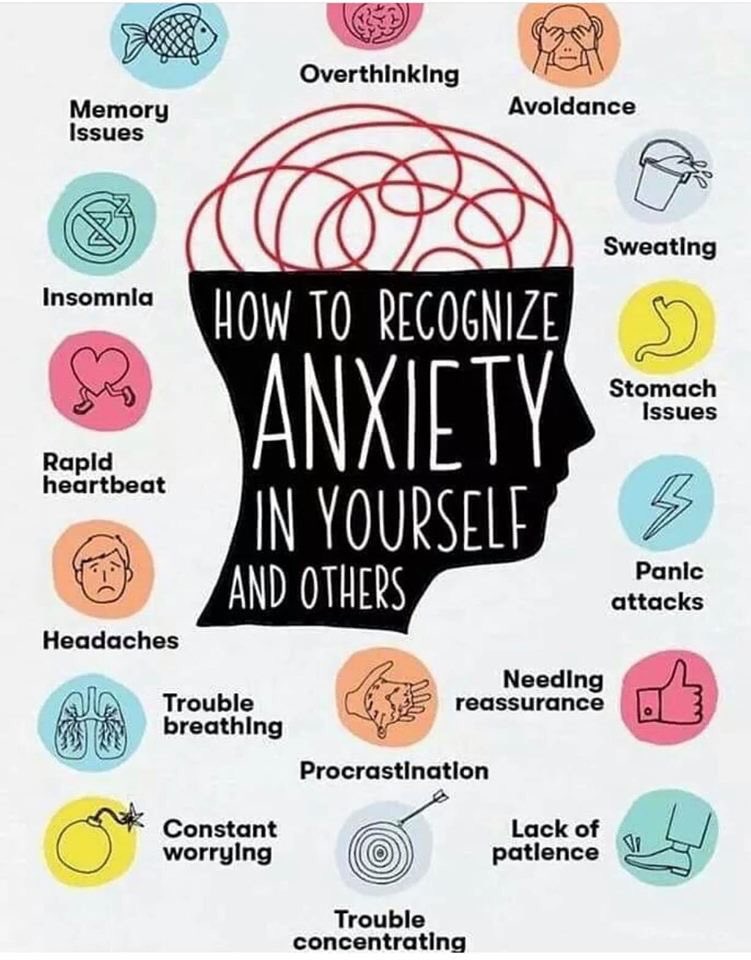
“Anxiety is your friend — it’s here to teach you something that you need and are not getting,” says Kate Schroeder, a licensed professional counselor from St. Louis, Missouri.
So, get curious and ask yourself: What is my body trying to tell me? Why am I feeling anxious right now? Maybe this feeling can tell you something about your overall well-being so that you can make a change.
For example, maybe you haven’t been sleeping or taking care of yourself while working on a big project and your body is starting to feel the effects of all that stress. Maybe it’s a sign you need to take a break.
Ask yourself what’s most important
“Doing what’s important to you is the most sure-fire way to reduce anxiety’s hold on you,” says Frick. “Think about what matters to you — being spontaneous? Caring? Independent? — [then] ask yourself how closely you’re living by those values.”
“Chances are, there’s room for improvement,” she continues, so “take things day by day, and incorporate one chosen value into your day. ”
”
For example, if you want to be more spontaneous, accept that invitation to go out for drinks after work with your colleagues, even if the idea of socializing gives you butterflies.
Then, once you get there, see how actually doing something that aligns with your goals makes you feel. Does it make your anxiety better or worse?
Challenge unhelpful thoughts
Remember, “anxiety can be like a broken fire alarm that keeps going off when no actual threat is there,” says Sica.
So, if you’re feeling afraid or nervous, ask yourself: Is this fear realistic? What are the chances of that fear actually happening? And if it did happen, how bad would it really be?
Sometimes when we take a moment to challenge our thoughts, it can help put those fears into perspective so that they have less of a hold over us.
Move around
When you notice your thoughts racing and you feel like you can’t stop them — or you feel physically affected by your anxiety, it’s best to try to get up and do something.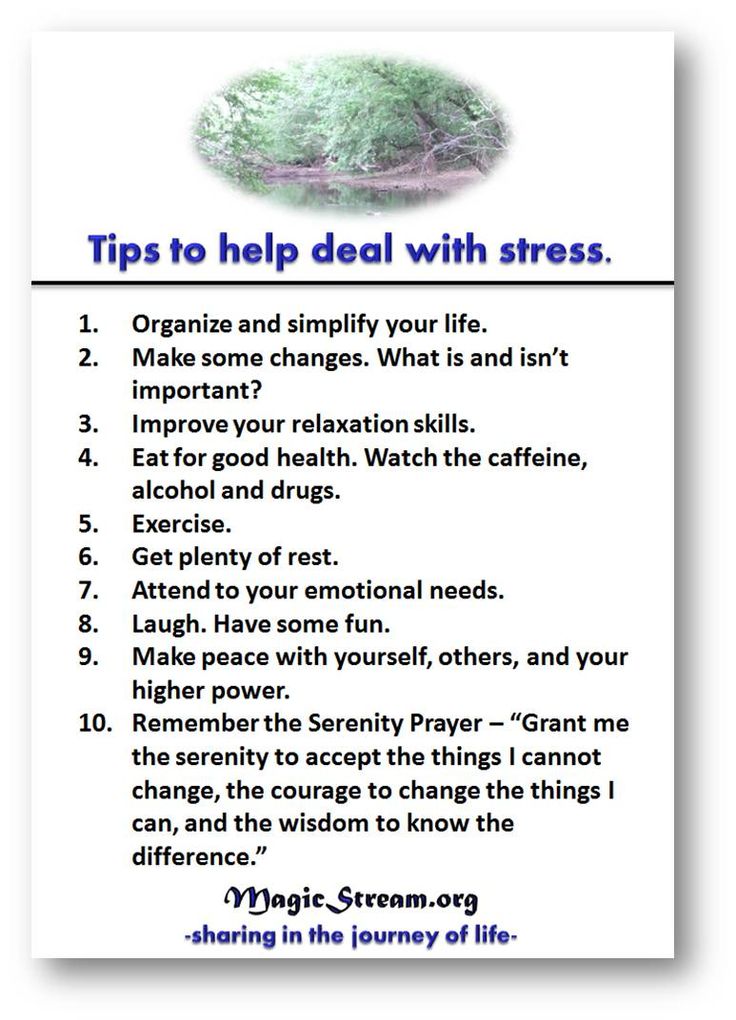
“When feeling the physical sensations of anxiety, you can soothe your mind from racing thoughts or worry by taking deep breaths, doing something physical to replace the anxiety with a different sensation, or creating a more soothing atmosphere by taking a shower, lighting a candle, taking a walk, putting cold water on your face,” explains Sica.
But don’t avoid
“Anxiety gets worse if we avoid things,” explains Frick. “This tells our brains that there’s a valid reason to be anxious, even if there isn’t.”
She continues, “If there’s something you want or need to do, but struggle to do because of anxiety, do your best to continue doing the activity safely.”
Otherwise, your fears will only continue to grow, making it all the harder. So, while it’s OK to get up and move around or engage in a distracting activity to break the cycle of racing thoughts, don’t let the distractions take over so that you fall further behind.
“Distracting activities like watching TV or socializing can sometimes get our minds off of anxiety for a short time,” explains Frick. “However, doing too much distraction leads to avoidance, which can make anxiety worse.”
“However, doing too much distraction leads to avoidance, which can make anxiety worse.”
“Anxiety is a normal part of life and it’s important to realize that so that you aren’t holding yourself to unrealistic expectations,” says Maggie Holland, a licensed therapist from Washington State. “it’s not going to ever 100% go away, and that’s not a bad thing.”
It can tell us when we need to relax, take breaks, or make changes in our lives. But it can also take over.
According to the Centers for Disease Control and Prevention, 11% of adults more than 18 years old have regular feelings of worry, nervousness, or anxiety. Also, the Anxiety and Depression Association of America says that 3-5% of Americans live with generalized anxiety disorder.
That’s why it’s important to both normalize and accept that anxiety isn’t going anywhere, then learn new tools to live with it and reframe it into something useful.
If you aren’t sure where to begin or would prefer help in developing strategies for managing your anxiety, consider working with a mental health professional for further care.
5 Ways Accepting Your Anxiety Can Make You More Powerful
What might happen if you worked with your anxiety, not against it?
How we see the world shapes who we choose to be — and sharing compelling experiences can frame the way we treat each other, for the better. This is a powerful perspective.
If you live with anxiety, then you likely know all too well how quickly it can take over your life. But what if we told you that you could reframe the way you view your anxiety? Imagine how different your life could be, even if it’s just for a few minutes each day.
“Much of what I teach my clients isn’t about getting rid of anxiety, but rather changing their relationship to it,” says Karly Hoffman King, MA, a licensed professional counselor.
“Anxiety [by itself] is neither good or bad, it just is,” she adds.
The way we respond to anxiety can make or break how it impacts our
lives. That’s why King says being able to open up to it, as opposed to
designing our life around trying not to experience it, can be a transformative
skill.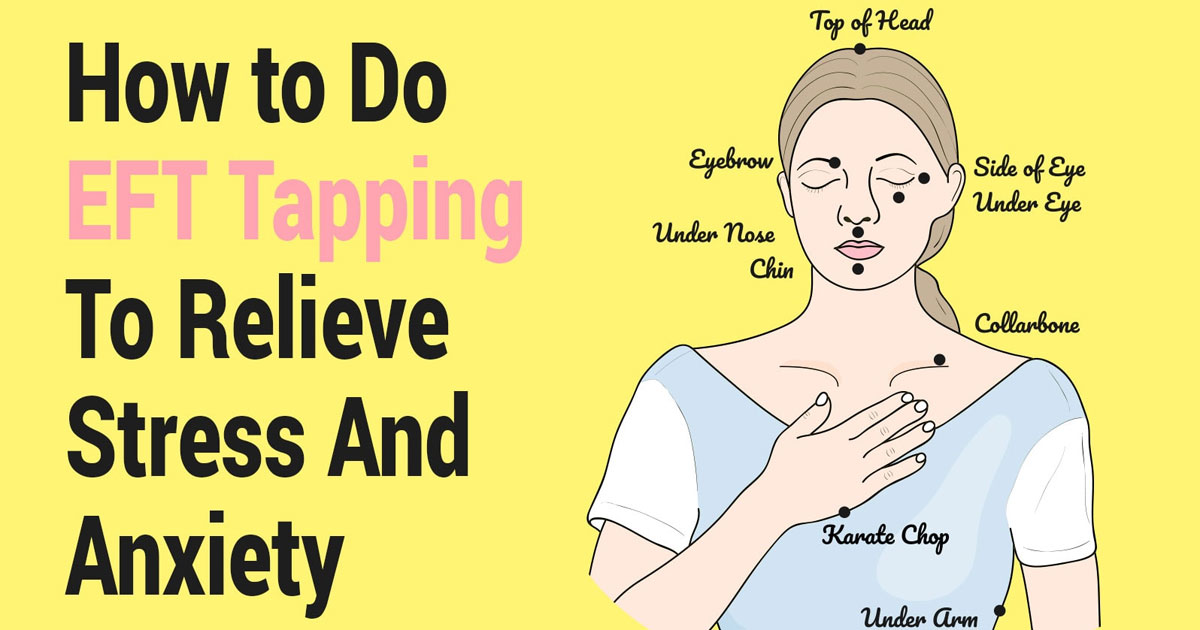
While you may not necessarily overcome anxiety, you can find ways to accept and work with it. In fact, you may even be able to find ways anxiety can make you more powerful.
Here, five people share their experiences living with anxiety and how they use their new relationship with anxiety to feel more empowered.
“One approach to using anxiety to empower ourselves is to understand it as a message about our own needs. When we start to notice where and when it shows up, we can start trying to understand what it’s trying to tell us.
We can also use anxiety as a protective mechanism to help us keep ourselves safe. As a fight-or-flight instinct, anxiety might be your body’s way of letting you know that you’re in the proximity of danger. Emotional danger is just as threatening to our health and happiness as physical danger, and anxiety — though unpleasant — can be used as a very helpful built-in warning system.”
— Saba Harouni Lurie, LMFT, ATR-BC
“The biggest gift that anxiety gives me is that it forces me to live in greater work-life balance, and this has allowed me to enjoy and experience life more fully. I simply can’t sustain the workload that I used to because of my anxiety. I probably could, with medication; however, I choose to use natural, evidence-based methods and I’ve adjusted my lifestyle [to manage the anxiety].
I simply can’t sustain the workload that I used to because of my anxiety. I probably could, with medication; however, I choose to use natural, evidence-based methods and I’ve adjusted my lifestyle [to manage the anxiety].
Specifically, I use a combination of acupuncture, yoga, and expressive art making (art therapy techniques) and I’ve slowed my pace down. As a result, I’m healthier in general, and the art and yoga leave me feeling more connected to myself. While I’m grateful that it can be managed, I can also honestly say that I’m better off as a result of having chronic anxiety.”
— Jodi Rose, credentialed art therapist, board-certified counselor, and yoga instructor
“Anxiety can be used as a powerful motivator. Instead of saying ‘I feel anxious,’ you can re-frame this and say ‘I feel excited.’ Once you have this mindset, you can become highly motivated to deal with whatever is making you feel anxious.
The feelings of anxiety and excitement are actually very similar. If you choose to experience excitement, you can go a long way.”
If you choose to experience excitement, you can go a long way.”
— Jon Rhodes, clinical hypnotherapist
“An anxious person and an excited person are going through similar experiences. The only difference is in how they interpret what’s happening. For years, I struggled with anxiety, perfectionism, self-hatred. When I learned to channel those patterns into helping people, writing, and working on self-awareness, something magical happened.
What used to be crippling anxiety turned into wide-eyed motivation. What used to be self-defeating perfectionism turned into artistic vision. What used to be self-hatred turned into a balance of self-love and self-honesty. This kind of alchemy is possible for anyone. I’ve watched it happen in myself and my clients. It’s magical, and it’s real.”
— Vironika Tugaleva, life coach, speaker, and personal-growth writer
“I suffer from severe anxiety and have since I was 15 years old. I’d been prescribed various medications before taking a more natural approach.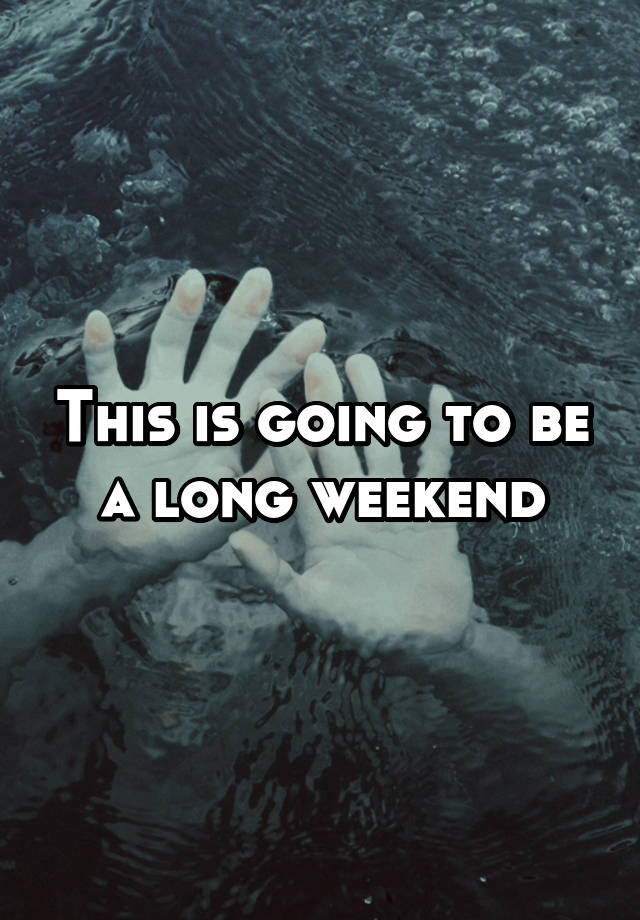 I’ve learned to value my anxiety because it’s caused me to excel in high-pressure situations.
I’ve learned to value my anxiety because it’s caused me to excel in high-pressure situations.
When most people are overwhelmed, I’m used to having to deal with constant stress and anxiety; it’s not a new place for me to be. It’s led to me better leadership positions, to the point where I not only deal with my anxiety but I help others deal with theirs.”
— Calvin McDuffie, health and wellness coach
Sara Lindberg, BS, MEd, is a freelance health and fitness writer. She holds a bachelor’s degree in exercise science and a master’s degree in counseling. She’s spent her life educating people on the importance of health, wellness, mindset, and mental health. She specializes in the mind-body connection, with a focus on how our mental and emotional well-being impact our physical fitness and health.
Deal with anxiety by looking it in the face
47,923
Know yourself
“Anxiety cannot be avoided, but it can be reduced, lowered to normal levels, and then used as a stimulus to increase attention and zest for life,” explains existential psychologist Rollo May in "The Meaning of Anxiety" (Institute for General Humanities Studies, 2011). Scientific research results and expert therapeutic experience suggest some ways to improve your well-being.
Scientific research results and expert therapeutic experience suggest some ways to improve your well-being.
Move more often
Those who spend more than six hours a day at their desks with little or no movement feel more anxious and stressed than those who sit no more than three hours.
Psychologists from the University of Tasmania clarify that it is not a lack of physical activity, but a long period spent in immobility: those who sit at the table all day and go to the gym in the evening are just as likely to experience anxiety as those who, after six hours of sitting, goes home and lies down on the sofa. So the emphasis should be on the frequency of movements, and not on their intensity.
Voice your worries
When anxious thoughts take possession of you again, list them, advises Gestalt therapist Nifont Dolgopolov: “I keep thinking about the fact that I don’t have time to complete the work on time…”, “I start to worry about. ..". Then try to remember a situation when you had thoughts and feelings that now do not let go (“When I took on this project, I had a fear that I would not meet the deadlines . ..”).
..”).
Name the strongest emotion ("I'm mad at myself for getting into this story at all!"). Express it as clearly as possible, strengthening it with your voice, gesture, body movement (it is better to do this exercise in a secluded place where no one will bother you and where you can shout or make a sharp movement). The idea of this exercise is simple: our unmanifested feelings and unfulfilled actions cause an endless movement of thoughts. As soon as we can express them, the cycle will stop.
Write what you think
Take a piece of paper and start writing down everything that comes to mind. Not choosing words, not paying attention to spelling, not editing myself.
“This exercise gives an outlet for feelings and doubts and allows you to look at them from the outside,” explains psychotherapist Alexander Orlov. - The method of free association in psychoanalysis, the method of directed imagination in Jungian analysis is built on a similar principle. Any psychotherapy presupposes confidential and free communication, that is, the utterance of everything that truly excites and disturbs.
Listen to music
Classics, rock, jazz - it doesn't matter, the main thing is that you like this music. Only in this case does it cause a decrease in heart rate and respiration, blood pressure, muscle tension and oxygen uptake, which leads to a decrease in anxiety and stress. This effect is of particular importance in working with patients with anxiety disorders.
Look anxiety in the face
“Instead of habitually 'escaping' from the symptoms of anxiety or panic, try not to try to escape from them, but passively experience unpleasant sensations,” notes cognitive psychologist Yakov Kochetkov. - You will quickly see that even the strongest anxiety weakens, and unpleasant symptoms go away.
For mild anxiety disorders, the principle of "Do what you fear" can be used independently, but it is better to start with a specialist: it can be difficult to correctly interpret the results yourself. In the future, each time we plunge into anxiety, we strengthen the belief that anxiety can be experienced.
Cultivate Positive Emotions
One of the pioneers of positive psychology, Martin Seligman, identifies the main tools to use to increase pleasant emotions. First of all, we must learn to savor the pleasure: to slow down the pace of work, not to succumb to impulses to be distracted by vain activities, of which we always have a lot.
You need to take time to fully enjoy the joy of achieving what you want, to feel satisfaction from the choice you have made. And also stop wanting more all the time, make your life easier and do the main thing. The best way to experience joy and enthusiasm is to devote more time to a cause that excites and fills your life with meaning.
Strengthen self-confidence
Over and over again, being convinced of our own competence and ability to cope with difficulties, we thereby protect ourselves from anxiety, says cognitive psychologist Albert Bandura. Confidence can be drawn from your own experience, from memories of your successes and the pleasures associated with them - say, in exams or in sports.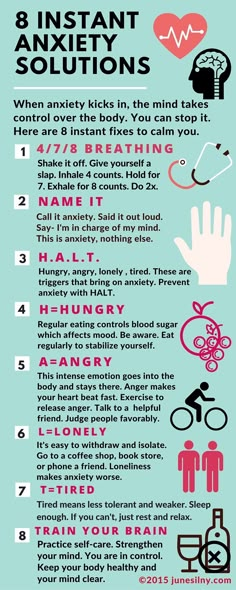
Another way is to remind yourself of people you admire and whose success motivates you. It is noteworthy that the more these people are similar to you in terms of age, gender, biography, career, the more likely that their success can add confidence to you.
By meditating, we create an inner space that allows us to move away from the situation
Meditate
The fact that yoga, meditation, breathing exercises calm the mind, relax and relieve anxiety has been proven by so many studies that it would not make sense to remind about it, if… it really wasn't all that effective. By meditating (at least 10-20 minutes a day), we create our inner space, an “inner fortress”, which allows us to step back from the situation, calm down and be able to choose without interference what values we act for, what meaning we give to our existence. .
By the way, such meditative activities as knitting, sewing, modeling, drawing are also a great way to create inner space and calm down.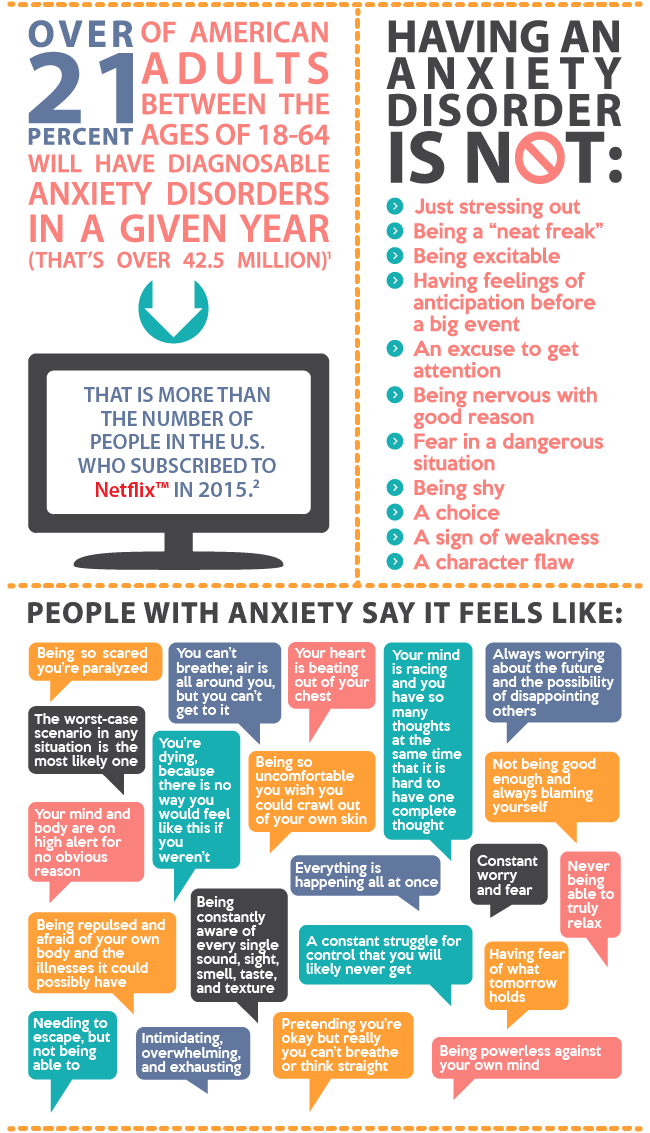 Biologist Jon Kabat-Zinn, neuroscientist Daniel Siegel, clinical psychologists Susan Orcillo and Lisabeth Roemer write about how to practice mindfulness, learn to tune your attention to the current moment, not letting yourself be distracted by anxious thoughts about the future. It is important to remember that we are largely responsible for ourselves and we have many more resources than we realize.
Biologist Jon Kabat-Zinn, neuroscientist Daniel Siegel, clinical psychologists Susan Orcillo and Lisabeth Roemer write about how to practice mindfulness, learn to tune your attention to the current moment, not letting yourself be distracted by anxious thoughts about the future. It is important to remember that we are largely responsible for ourselves and we have many more resources than we realize.
Text: Alla Anufrieva Photo Source: Getty Images
New on the site
“For my husband, I am a “rubber Zina”, a cleaning lady and a laundress”
“I am a “guru” for sluggish relationships. How to create a healthy union?
"Don't pick your nose": scientists have found another reason to stop bad habit
"Good enough marriage": how not to be disappointed in marriage
Personal experience: I live with bipolar II disorder
Prevention of cystitis: 10 essential rules
“I’m afraid that my mother will not survive the consequences of a stroke”
6 signs of a person who was not loved in childhood
What will help you cope with anxiety and start living your own way
can reach neurosis if you do not master the techniques of self-soothing and awareness. “In order to start a worthy existence, it is not at all necessary to wait until the anxiety goes away. Start living the way you want, and gradually it will recede, ”says Tanya Peterson, M.D., a certified consultant in the field of psychology. In her book Inner Peace, the author told how to regain inner peace and start living your own way. We publish an excerpt with five tips on how to deal with anxiety.
“In order to start a worthy existence, it is not at all necessary to wait until the anxiety goes away. Start living the way you want, and gradually it will recede, ”says Tanya Peterson, M.D., a certified consultant in the field of psychology. In her book Inner Peace, the author told how to regain inner peace and start living your own way. We publish an excerpt with five tips on how to deal with anxiety.
Tanya Peterson
Mann, Ivanov & Ferber, 2021
Accept Anxiety
If you think about how you live with anxiety, you notice that life is a struggle and overcoming obstacles. Consider whether this fight is fruitful and helps to resist anxiety. Most likely, this does not solve anything and even exacerbates anxiety. Resisting anxiety is useless.
In the fight against anxiety, we argue with it and curse it, but where is our attention at this time? It is completely directed at her. What we focus on grows stronger and stronger. When we shift our attention to something else - for example, to positive moments that will replace anxiety, it becomes less, and what is important to us - more.
This is logical, but not entirely clear. How to stop fighting anxiety if we are trying to get rid of it? How to switch attention to something else when anxiety loudly declares itself and requires our reaction? To end anxiety, you must first come to terms with it.
Anxiety is part of our experience, and we cannot get rid of it completely; but its acceptance helps to end the struggle, freeing up time and energy for the acquisition of positive experience. There are several ways to accept anxiety and move forward.
-
Treat anxiety as a point of view. Acceptance is a mindset where you remind yourself that anxiety may be present in life, but you will still move forward.
-
Treat anxiety as behavior. Acceptance usually means acting on what is important to you, even if you feel uneasy.
-
Fully, consciously present in the moment. With the help of the senses and thoughts, body and mind, try to be where you are. When you notice anxiety, accept it and turn your back to the other side.

-
Sit still with your anxiety. This is a form of meditation: breathe deeply, sit quietly and notice the thoughts and feelings that come and go. When you become aware of your anxiety, acknowledge it and bring your attention to your breathing.
If you accept the anxiety, then you begin to control it, and not vice versa. You are responsible for what you pay attention to, regardless of the presence or absence of anxiety.
How to look at life from the bright side and successfully deal with stress? Learn this in the Antifragility course.
Determine your values
What will your life be like when anxiety is no longer a problem? If you find it difficult to answer, you are not alone. Anxiety dominates the human mind. Take back what is yours and think about life without worry. In this way, you will regain control over your thoughts, feelings, and actions.
When you allow yourself to recognize and describe life without anxiety, you will start to think broader, the world will sparkle with new colors, there will be less fear, because you will think about how to make the unknown known and possible.
First, study the situation and answer the question at the beginning of this chapter: what will your life be like when anxiety is no longer a problem? The path to living boldly the way you decide for yourself begins with an accurate understanding of the wording. What is important to you?
The process of self-knowledge is sometimes difficult to start. When anxiety has already taken over, it takes time and patience to take responsibility for your actions again. But consider this process joyful and easy. You will learn more about who you are and decide what is important to you. In the process of defining your values, you don't even have to think about anxiety or how to reduce it. Examine yourself and understand what is important in life for you.
Among the methods of research and determination of values, the following can be distinguished.
-
Keeping a diary.
-
Participation in volunteer work - it helps to understand what makes you live.
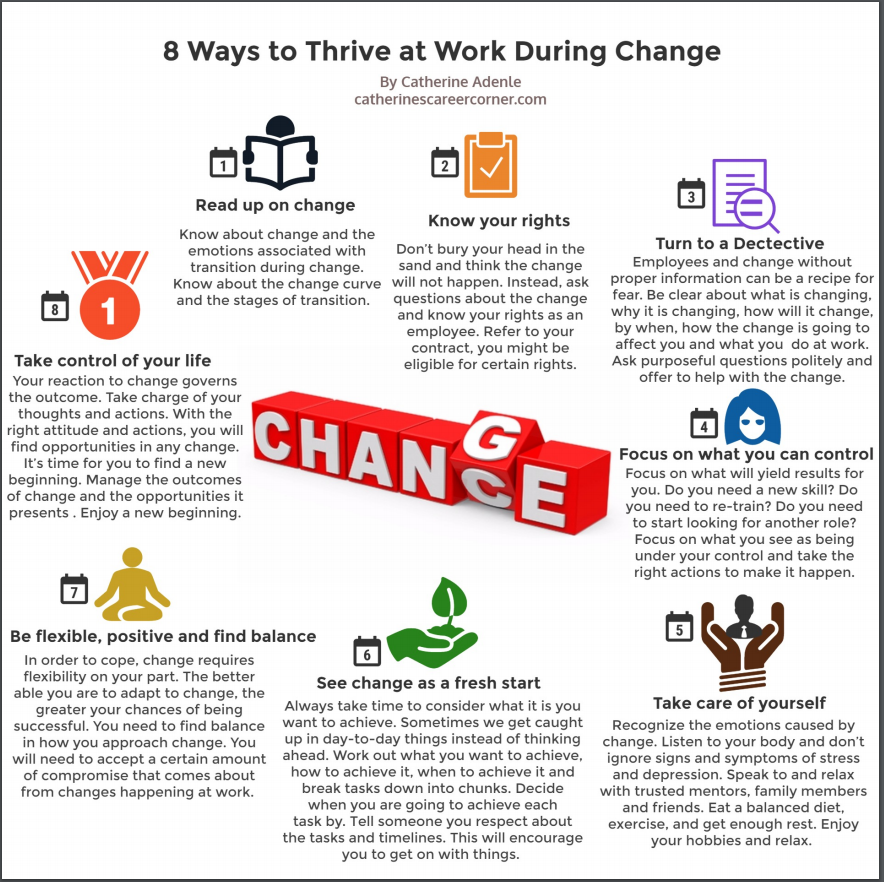
-
Viewing magazines - you can buy them or borrow them from the library; they will help you understand what interests you.
-
Reflections on broader concepts such as family, spirituality, health, financial stability, etc.
-
If you take the time to define your values, you will realize what you want. It will take you in a new direction that has nothing to do with what you don't want.
Values also include your self-esteem. Complete the sentences:
-
I am…
-
I'm good at it...
-
Thanks to me in my relationships, in work and in communication with others, there is ...
-
I have merit because...
Appreciate the beauty in your life
Anxiety is a dark cloud that closes our eyes. It overshadows the world, and we see a distorted image. Anxiety does make the world a terrible place, but that's not the full picture. Once anxiety rears its ugly head, we can change our perspective by finding beauty in our lives.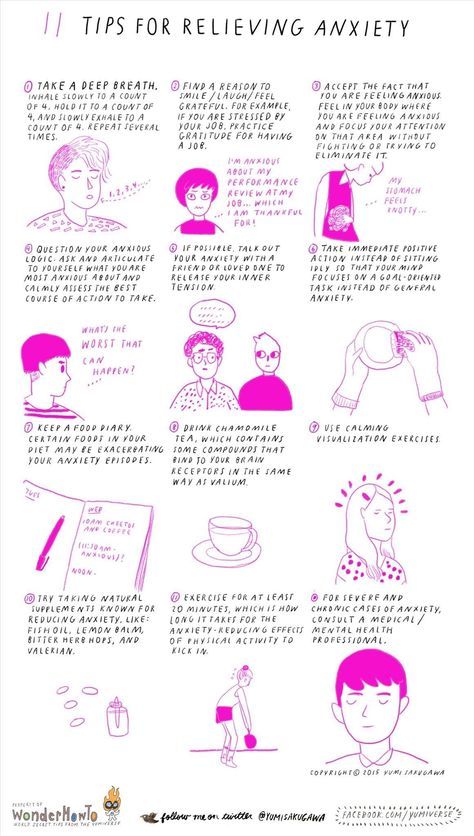
Having seen the beautiful, we can continue to see the good. Right now, look beyond your worries. What do you see, hear, feel - smell, touch, even taste? Is it really better than anxiety? What makes you smile or feel a little lighter despite your worries? If you intentionally look for beauty in the world, your way of perceiving will change. Instead of worries, you will begin to notice the positive moments, the beautiful little things in life. Eventually it becomes a habit, and seeing beauty will become more natural for you than looking at the world through the prism of anxiety.
-
Play adventure in search of beauty.
-
Try the Spy game. Find a certain number of objects with names starting with one letter. Even little things can respond to your sense of beauty.
-
Do you hear what you hear? Go for a walk and try to recognize the sounds around you.
-
Stop and smell the roses. Find a place with roses or other flowers.
 For example, go to a flower shop, a supermarket, a farm store, a local garden, a park, or go to a flower bed on the boulevard. Stop, enjoy the beauty of the flowers, breathe in their scent. Relax and enjoy this time.
For example, go to a flower shop, a supermarket, a farm store, a local garden, a park, or go to a flower bed on the boulevard. Stop, enjoy the beauty of the flowers, breathe in their scent. Relax and enjoy this time. -
Make a collage. Flip through magazines and catalogs to find beautiful pictures. Cut them out and stick them on a piece of paper to make a poster that you can look at whenever you want something beautiful.
-
Take a photo tour. Grab your camera and take pictures of everything you find beautiful on your way. Create a themed album to preserve this beauty (eg Beautiful Park).
Because when you stop and look around, life becomes pretty amazing.
Expand your mind and use your abilities
Anxiety is relentless and demanding. Her approach to thinking, feeling, and behaving is limited and subject to rules. Under its influence, we often reason in terms of "should" and "should." We severely judge and criticize ourselves for what we consider to be mistakes. Instead of resisting or succumbing to anxiety, you can dodge its clutches. To do this, you need to learn to think wider and develop flexibility.
Instead of resisting or succumbing to anxiety, you can dodge its clutches. To do this, you need to learn to think wider and develop flexibility.
Psychological flexibility - the ability to think and act freely. It allows you to experience anxious feelings without getting into their cage. It's all about the possibilities
Anxious thoughts and emotions become only an alternative to others. As you develop mental flexibility, you add “what else?” every time. in dialogue with anxiety. It looks like this.
Anxiety: You are late for work because you are irresponsible and unreliable. People cannot rely on you and get offended.
You: it's true. I can't cope with work. I need to quit before they fire me.
You, but psychologically flexible: what else could it be? I was late because I was helping my son take the project to school, and I called and warned that I would be late. This means that I am responsible.
Anxiety: you are irresponsible.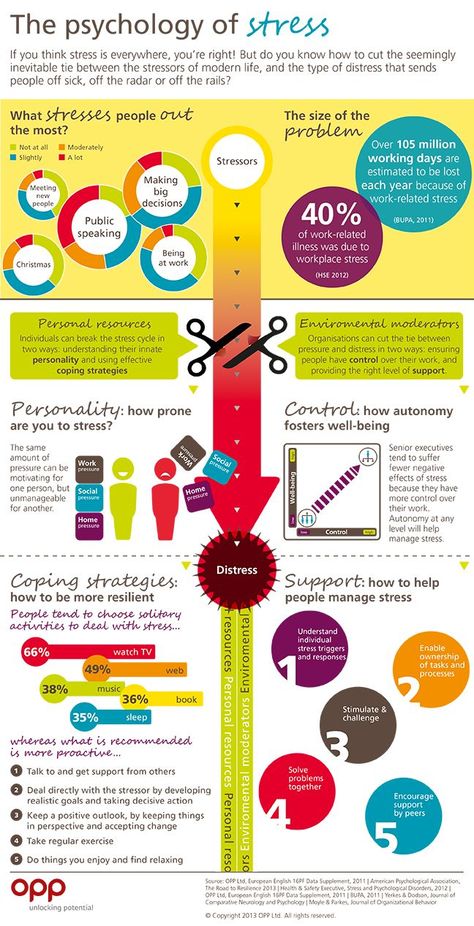 You should have left the house earlier. You don't even know how to manage your personal time. How do you cope with the demands at work?
You should have left the house earlier. You don't even know how to manage your personal time. How do you cope with the demands at work?
You: it's true. I do everything wrong. I can't handle household chores or work. If I can't even get to work on time, how can I do the hardest part?
You, but psychologically flexible: what else could it be? I help my child. I got to work. I immediately got down to business. I will finish the work a little earlier. Today's delay is an isolated case. I am a responsible and reliable person. I won't be fired for a single tardiness.
Anxiety makes the process difficult, so it is useful to practice. Think of it as a kind of stretching exercise for the mind. List your anxieties and worries, and then brainstorm a list of alternative possibilities for each. Asking the question: “What else could it be?” - you open your mind to new ideas and possibilities, so you can dodge and escape anxiety straight into your life.
How to look at life from the bright side and successfully deal with stress? Learn this in the Antifragility course.
Reward yourself
Anxiety is always related to problems - past, present or future. And it always pulls us into a state where something is wrong. This is a beaten track. Tread a path for yourself to get out of it, and to do this, find something that reduces feelings of anxiety, and then reward yourself for it.
To do this, it is necessary to shift the focus of attention from situations that cause anxiety to look at positive aspects. The first important step is to notice pleasant moments and thoughts that are not caused by anxiety. It helps us understand how we feel and think.
A great way to notice the good is to start making a list or collection of things that don't cause anxiety
These can be people or situations, activities like cleaning the closet, reading or running. If you write it all down, you will have a tangible list that you can reread and remember these things. However, since anxiety is sometimes deeply rooted in our minds, it is sometimes difficult to get around it by simply noticing and writing it down.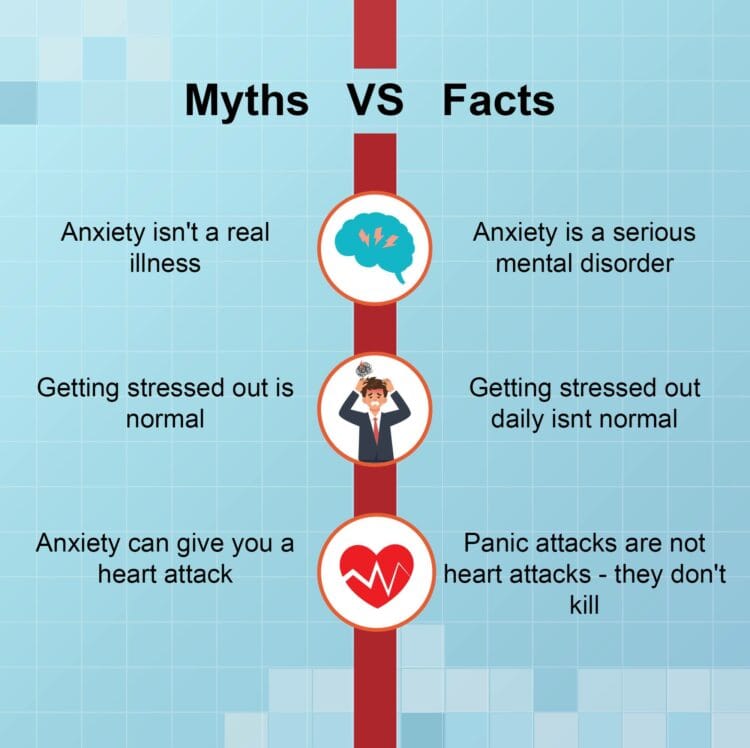 It is often necessary to note that we have done it.
It is often necessary to note that we have done it.
You can reward yourself to recognize and reinforce a positive feeling. This helps to take positive moments and focus on them. The brain is sometimes prone to negativity, but it also has a pleasure center, thanks to which we focus on the good. When we do something, no matter how small, to mark pleasant moments, the pleasure center turns on, which releases dopamine, a powerful hormone that causes good mood. It conquers anxiety and suppresses the action of stress hormones such as cortisol. The mood rises, and there are forces to drive away anxiety.
There are plenty of opportunities to celebrate these moments and reward yourself. Try the ones I suggest, or come up with your own.
-
Jump into the puddle to make the spray fly in all directions.
-
Eat something tasty and healthy.
-
Jump rope.
-
Play hopscotch.
-
Draw with chalk.
-
Read.
